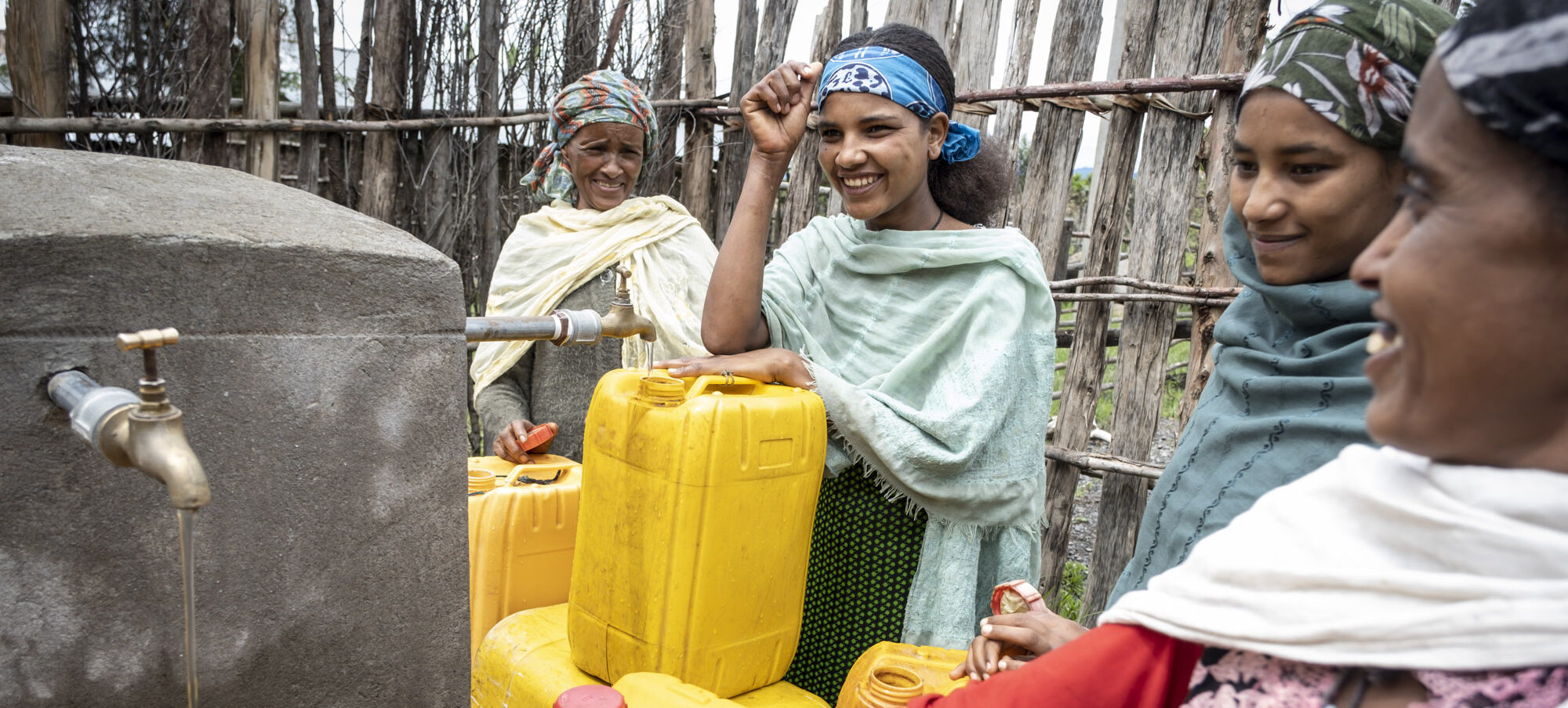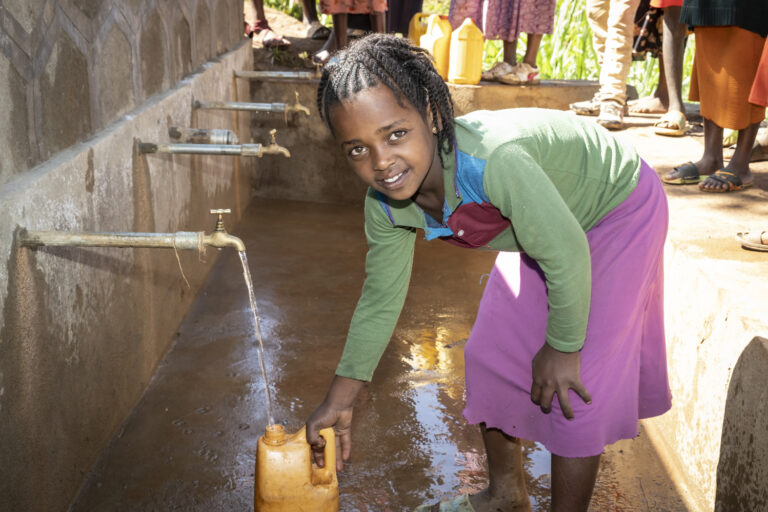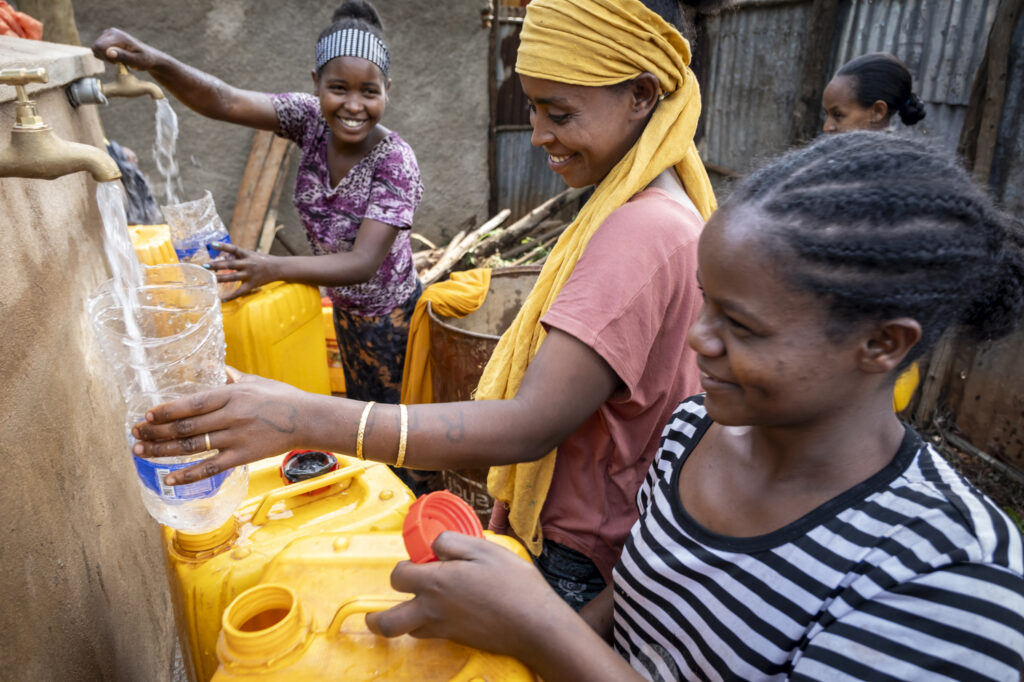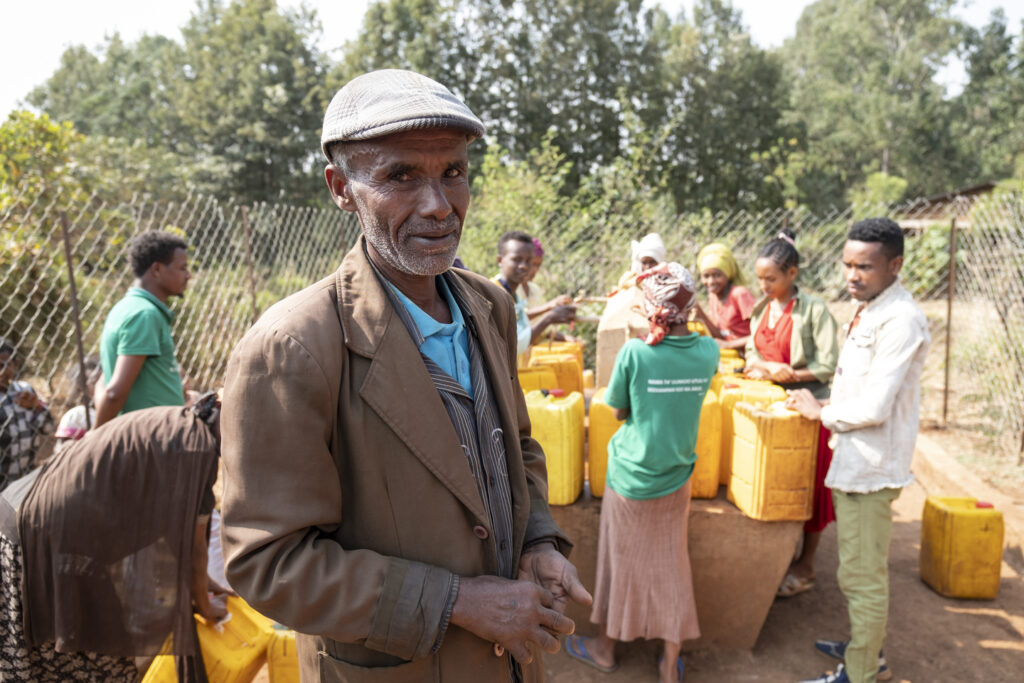
Water and hygiene
Clean water changes lives
Lack of drinking water is a fact of life for four out of ten people in rural Ethiopia. Wells are rare, springs and water holes are often highly contaminated. Shortages and life-threatening diseases are the result. Mostly women and girls have to walk for several hours to the nearest water point, and back home again carrying heavy jerry cans.
Together with the population we construct hand dug wells, spring developments, water reservoirs for rainwater or complete water supply systems at central locations. The systems are maintained and kept clean by members of the community.

Awareness raising and training for care and maintenance also contribute to the sustainability of water and hygiene projects. Farmers are independent of the unreliable rainfall. If a rainy season is too short, it can lead to crop failures. Traditional irrigation methods also result in the fertile soil being washed away.
Responsibility lies with the people
With the construction of wells and spring developments we create access to clean, healthy drinking water. As in other areas, the population is involved in the project from the outset. The decision where to dig a well or spring development ultimately depends not only on the needs in the region and water resources, but also on whether the people are willing to take responsibility for the project.

Our activities
- Construction of spring developments and hand-dug wells
- Construction of water supply systems for small towns
- Construction of reservoirs for spring developments, in order to collect the flow of water at night
- Initiation of water committees in the villages
- Training of the population in well management and maintenance
- Construction of washing points and drinking troughs
- Construction of irrigation systems for farming
Clean water helps to improve the standing of women
The supply of clean, healthy drinking water close to villages promotes health and hygienic conditions. This in turn has a positive effect on reducing avoidable diseases such as diarrhoea and the eye infection trachoma. And it saves the girls and women time: they are able to attend school or training courses, or generate income by participating in microcredit programmes.

Wells as joint projects
A water committee, elected by the inhabitants of the village, is trained by Menschen für Menschen to maintain and care for the well, in order to ensure the longest possible useful life. The water committee usually retains a well supervisor. The latter is responsible for the maintenance and regular cleaning of the well and receives payment for his work from the funds contributed by the users. The amount of this usage fee is specified by the villagers themselves and used to pay for any repairs or spare parts needed in future.
